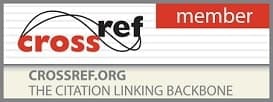- Printed Journal
- Indexed Journal
- Refereed Journal
- Peer Reviewed Journal
P-ISSN: 2394-1685 | E-ISSN: 2394-1693 | CODEN: IJPEJB
Impact Factor (RJIF): 5.38
2016, Vol. 3, Issue 2, Part A
Increase of fat utilisation during endurance exercise
Author(s): Ajay Solanki
Abstract:
The capacity of the human body is limited to store carbohydrates, where as to store the fat depots are large, which are representing a vast source of fuel for exercise. However, fatty acid oxidation is limited, especially during intense exercise, and carbohydrate remains the major fuel for oxidative metabolism. For the improving strategies of athletic performance, recent interest has focused on several nutritional procedures which may theoretically promote fatty acid oxidation, easy the rate of muscle glycogen depletion and improves exercise capacity. In some individuals the ingestion of caffeine improves endurance capacity, but L-cantina supplementation has no effect on either rates of fatty acid oxidation, muscle glycogen utilisation or performance. Likewise, the ingestion of small amounts of medium-chain triglyceride has no major effect on either fat metabolism or exercise performance. On the other hand, in endurance-trained individuals, substrate utilisation during sub maximal exercise can be altered substantially by the ingestion of a high fat (60 to 70% of energy intake), low carbohydrate (15 to 20% of energy intake) diet for 7 to 10 days.
Adaptation to such a diet, however, does not appear to alter the rate of working muscle glycogen utilisation during prolonged, moderate intensity exercise, nor consistently improve performance. At present, there is insufficient scientific evidence to recommend that athletes either ingest fat, in the form of medium-chain triglyceride, during exercise, or "fat-adapt" in the weeks prior to a major endurance event to improve athletic performance.
Pages: 45-46 | 1605 Views 177 Downloads
Download Full Article: Click Here

How to cite this article:
Ajay Solanki. Increase of fat utilisation during endurance exercise. Int J Phys Educ Sports Health 2016;3(2):45-46.








 Research Journals
Research Journals